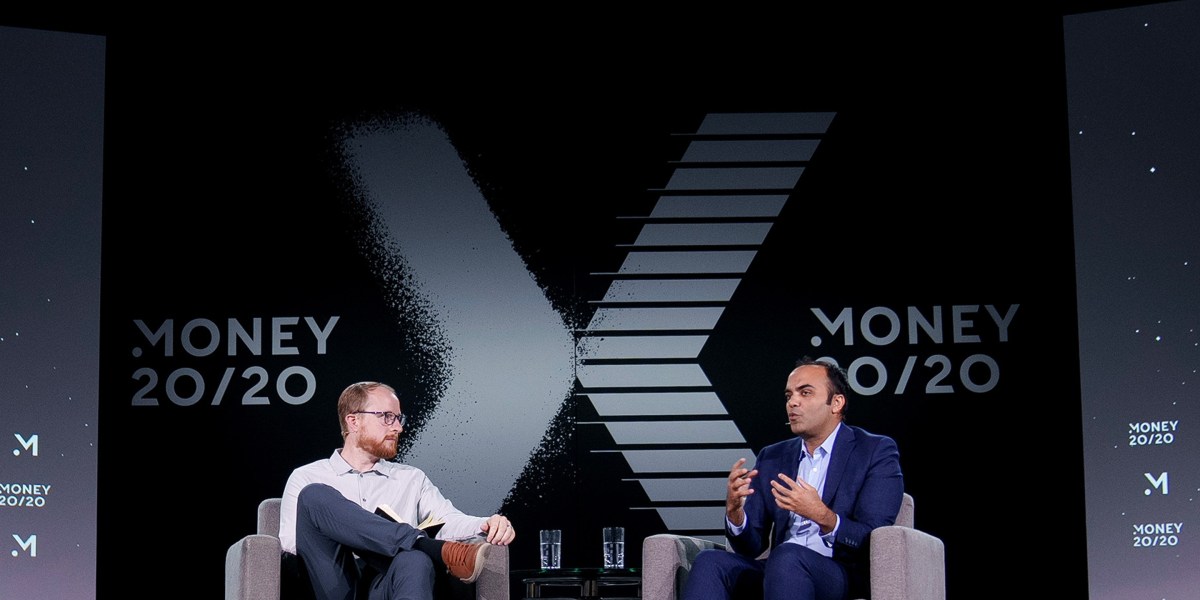
There was lots of talk at Money20/20 about the slowdown in IPOs and mergers, but one topic got very little airplay at the world’s biggest fintech conference: the U.S. presidential election.
Whoever is elected on November 5—Vice President Kamala Harris or Former President Donald Trump—will have a huge impact on businesses as well the regulations that govern them. But the more than 10,000 fintech entrepreneurs, bankers and investors from over 90 countries who attended Money20/20 in Las Vegas last week didn’t appear ready to discuss the issue.
‘There is a deafening silence,” said one executive of a major fintech. The exec said they had about 30 client meetings at Money20/20 and not one brought up the election. “When I travel around the world, to Asia and Mexico, the U.S. election is the first topic,” the executive said.
“Everyone is in denial because so much can change,” another head of a fintech said.
Regulators were also mum. Rohit Chopra, director of the Consumer Financial Protection Bureau, received a very positive welcome just days after the agency finalized its long-awaited rule on open banking on Oct. 22. Rule 1033 makes it easier for consumers to switch between financial service providers and is viewed by some as a game changer. “This is huge. This is amazing,” one startup executive said.
On the same day that the agency issued the rule, two bank lobby groups, the Bank Policy Institute and the Kentucky Bankers Association, sued the CFPB, claiming the regulator overstepped its authority.
Chopra said during a Money20/20 keynote that he wasn’t surprised that the largest players want to stop the rule. “This is normal. Where those that already have power want to hold onto it, it is often an obstacle to progress,” he said.
“No one is happy with 1033, but the rule needs to exist. Without regulatory backstop, it is hard for the fintech ecosystem,” said Jane Barratt, MX’s chief advocacy officer and head of global public policy.
CFPB’s Chopra, however, didn’t mention the upcoming election or his plans for the future. Chopra is a former FTC commissioner who also previously worked at McKinsey. If Harris is elected, Chopra may get to lead another agency, the second fintech exec said. “Under Trump, Chopra is gone,” the person said.
Gary Gensler, the embattled chair of the SEC, answered questions during an Oct. 28 fireside chat but refused to comment on the election. In response to questions of whether his recent media appearances were a series of exit interviews or a campaign to keep his job, Gensler didn’t bite, saying only that he would stay as SEC chair until the “referee calls the whistle.”
“Democracies have consequences,” Gensler said.
Not everyone backed off the election. Gerry Cohn, who served as former President Trump’s chief economic adviser from 2017 to 2018 and was a director of the National Economic Council, took a positive view of his former boss. He predicted Harris will continue the “highly restrictive” policies of the Biden administration, which is considered a more aggressive antitrust enforcer.
“[Harris] will look to break up big companies. They will look to make all types of capital acquisitions, or capital allocations much more difficult,” Cohn said.
Several entrepreneurs questioned by Fortune said the election will have little impact on their businesses. Andrew Brown, the co-founder and CEO of Check, a payroll startup, said the environment at Money20/20 seems more stable than in past years. In 2021, when startups raised a record $621 billion in venture funding, Brown said it seemed like “every time [he]turned around someone was raising a huge round.” That changed in 2022 and 2023 when climbing interest rates caused financing to slow and some startups had to shut down.
“This year the macro-economic situation seems more stable and more clear than it has for several years,” Brown said.
Brown said that he’s confident entrepreneurs are prepared to run their businesses through “whatever outcome of the election.”
Deals Down
Some bankers have blamed the uncertainty caused by the election for helping further slow M&A. Mergers have yet to rebound from 2021’s record setting pace when 15,582 U.S. announced mergers were valued at about $2.8 trillion, according to data from Dealogic. The number of U.S. announced transactions this year is down 33% from the same time period in 2021 and 6% from 2023, which was a slow year for mergers. As of Oct. 29, 8,648 mergers totaled $1.3 trillion.
“Everything feels ho hum,” one banker told Fortune.
IPOs also remained slow in 2024 but have picked up from the glacial pace of new issues in 2022 and 2023. The U.S. IPO market typically raises about $46 billion to $47 billion in proceeds, said Lynn Martin, president of the New York Stock Exchange Group, who also spoke during an Oct. 27 keynote.
IPOs this year raised $36 billion but fintechs were largely absent, she said. “We’ve raised more capital in the U.S. market through the end of September 2024 than we did in all of 2022 and 2023 combined,” Martin said.
Join business‘s brightest minds and boldest leaders at the Fortune Global Forum, convening November 11 and 12 in New York City. Thought-provoking sessions and off-the-record discussions feature Fortune 500 CEOs, former Cabinet members and global Ambassadors, and 7x world champion Tom Brady–among many others.
See the full agenda here, or request your invitation.

